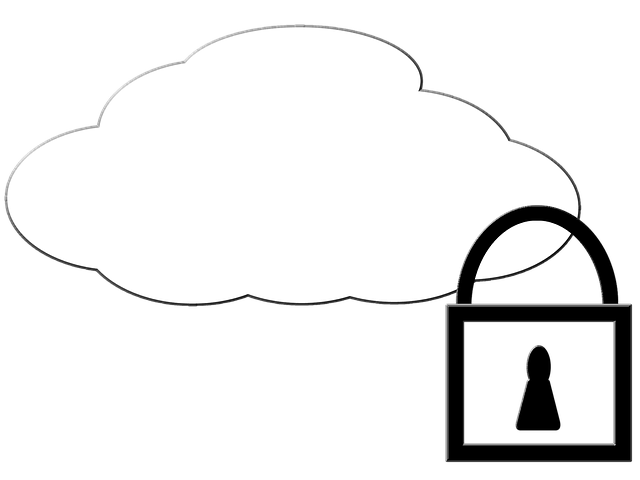There was a time when a person’s files like music, pictures and other computer documents were stored on a particular drive. That drive could be the computer’s storage device, an external storage device like an external hard drive, a U.S.B., or a disc.
This changed when cloud computing was introduced. Instead of a person having access to his/her files only from a particular storage device, he/she can now access these files from any device, from anywhere in the world, provided he/she is connected to the internet.
 But what is cloud computing, really? What are its benefits, and what are the different types of functions that one can get from this technology?
But what is cloud computing, really? What are its benefits, and what are the different types of functions that one can get from this technology?
The Definition Of Cloud Computing
People have realised that accessing information such as pictures and other files from only one device can be cumbersome. Just imagine if you have to take an external hard drive with you all the time. It is heavy, and there is a possibility that you may drop or lose it somewhere.
And if you lose it, all your files are gone. What if there is a solution where you no longer need that hard drive? That is what cloud computing basically do. You store all your files on another company’s server, and then you can access these files from any device anywhere.
As far as storage is concerned, the two most used products are Google Drive and Dropbox. You can store your files on their servers and access them anywhere. Cloud computing services are not only used for file storage: many apps today use them too.
For example, you can play games like the Lucky Duck game online anywhere from any device. All you need is to log in and then all your data will be available to you. Facebook does the same—you can log in on any device and view your photos, your friends’ list, and everything will be accessible to you.
So why is it called “cloud?” Because, from a literal standpoint, the cloud can travel around, carrying its content to different places. Andy Hertzfeld, a computer scientist, said: “…instead of just having a device to program, we now have the entire Cloud out there, where a single program can go and travel to many different sources of information and create a sort of a virtual service”
Similarly, the files and programs you have stored on a server are there for you to access no matter where you are in the world.
What Are The Types Of Cloud Computing?
Over the years, cloud computing and storage branched out into different sectors. Below you will find the different types that serve different types of customers.
Private Cloud
This a type of storage device where the server is not shared with another company. In short, it is yours, or your rent it, and it is exclusive to you and your data. Typically, a private cloud is the preferred system for businesses. Like other iclouds, it is remotely located in another place, usually in the server location of the cloud system provider. Companies also have the option to put these servers in their own office.
Here are the benefits of a private cloud:
- Not shared: information is exclusive to you and your employees.
- Big savings on capital for computer and server infrastructure if the cloud system is rented.
Public Cloud
A public cloud is one that is shared by millions of end-users. An easy way to understand this is Facebook. Basically, the Facebook member has no control of it. You cannot tell Facebook to turn it off or switch it on.
The company that controls it is the cloud vendor, also called a hosting vendor. If you are storing your data on Google Drive or Dropbox, it is also a public cloud, which means you cannot tell Google to store your data in Manchester or New York or China. It is up to Google to decide where to locate its servers.

The benefits of a public cloud are as follows:
- Almost free all the time.
- You can upgrade for a higher plan so you can store more data.
- Your files are secure.
- You have the option to back up your files in case the server locations experience data loss.
Hybrid Cloud
The hybrid cloud is a combination of both the public and private systems. A good example of this is a finance company that allows its members to trade stocks or other goods online. The private cloud is used for trading the orders, and the information is kept by the company. The trade analytics, however, is stored on the public one.
Both the public and private cloud servers work hand in hand for an end-user to access. What the end-user does not know is that not all their actions are stored in the same servers.
Here are some benefits of the hybrid cloud:
- Easier for businesses to scale up.
- Added layer of security as different files and programs are stored on separate servers.
Hybrid clouds are used most often by large businesses that need to store data on their private servers, and yet they also need computing software that is not as sensitive, so they have to outsource the cloud computing service to another company.
Summary
The cloud is a brilliant innovation in internet technology. Without it, people would not be able to play games that run on apps, access email content and so much more. The cloud also makes it easier for businesses to run their operations.

The cloud computing technology has grown beyond storing information. Today, it also includes software that processes calculations in real-time. For example, you can trade stocks and calculate your potential earnings and losses in real-time. These calculations are done in the cloud, not on your mobile device.
With the iclouds, people can do more, yet spend less. Just imagine if you have to install a software program on your device for every app or game you want to use. This would take up so much space, and mobile devices would become more expensive. With the cloud, all these issues are taken care of. All you need to do is to tap and swipe, and the technology will do the rest.
